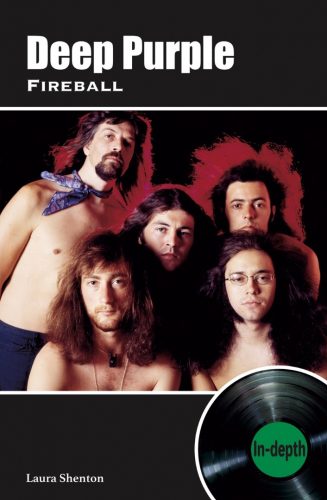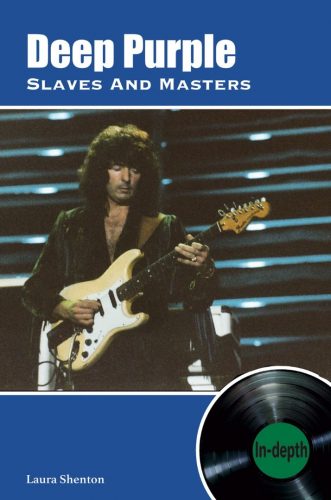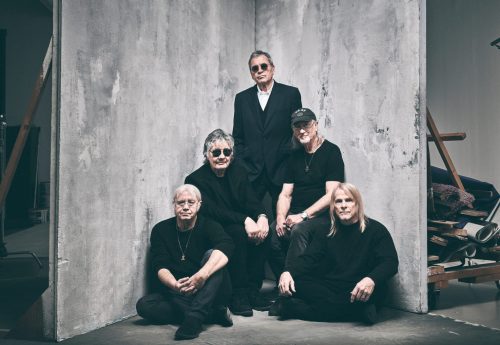A couple of new books by Laura Shenton are due to be published by Wymer in September. These follow the “in-depth” album-by-album format pioneered in March with Stormbringer. Caveat emptor: previous output from this author drew, ahem, mixed reviews from our audience.
Fireball
What: Deep Purple Fireball In-depth by Laura Shenton
When: September 24, 2021
Where: Wymer Publishing
ISBN: 978-1-912782-82-6
Price: £14.99

Marketing blurb reads:
In 1970, In Rock marked the studio arrival of Deep Purple Mk2. When it came to making a follow-up, times were turbulent and divisive, so much so that there were doubts as to whether Deep Purple would even last!
Sandwiched between In Rock and Machine Head, it is hardly surprising that Deep Purple’s 1971 album, Fireball, is so often overlooked in comparison. It wasn’t an easy time for the band; with demand for more concerts following the success of In Rock, the making of Fireball took over a year and yet, it is an essential album – both in terms of how it documents Deep Purple’s progression as a band and in terms of what it offers overall musically.
In this book, author Laura Shenton MA LLCM DipRSL offers an indepth perspective on Fireball from a range of angles including how it came to be, how it was presented and received at the time (live as well as on record), and what it means in terms of Deep Purple’s legacy today.
Preorder from the publisher.
Slaves And Masters
What: Deep Purple Slaves And Masters In-depth by Laura Shenton
When: September 24, 2021
Where: Wymer Publishing
ISBN: 978-1-912782-83-3
Price: £14.99

Marketing blurb reads:
Slaves And Masters is arguably one of the most divisive albums in Deep Purple’s history. A product of Ian Gillan’s sacking from the band and the recruitment of former Rainbow vocalist Joe Lynn Turner, in 1990, Slaves And Masters divided the fanbase enormously. But with four fifths of the classic Mk2 lineup at the helm and a desire to recapture the live feeling in the studio that had been a hallmark of their seventies albums, was it really the worst Deep Purple album as some fans claim?
In this book, author Laura Shenton MA LLCM DipRSL offers an indepth perspective on Deep Purple’s thirteenth studio album from a range of angles including how the album came to be, how it was presented and received at the time (live as well as on record), and what it means in terms of Deep Purple’s legacy today.
Preorder from the publisher.
![[hand]](/hs-pics/portraits/hands/glover7.jpg)
![[face]](/hs-pics/portraits/faces/glover.jpg)




 Unauthorized copying, while sometimes necessary, is never as good as the real thing
Unauthorized copying, while sometimes necessary, is never as good as the real thing